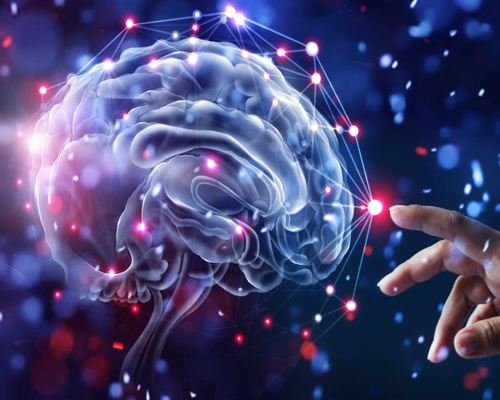
Consultant neurosurgeon Mr Erlick Pereira and consultant neurologist Dr Dominic Paviour recently featured in the Harley Street Medical Area publication talking about this life-changing treatment.
“When you want to move a part of the body, there is an electrical circuitry deep in the brain that deals with the process of turning the thought about moving into the physical movement,” explains Mr Pereira.
“When you want to move a part of the body, there is an electrical circuitry deep in the brain that deals with the process of turning the thought about moving into the physical movement,” explains Mr Pereira.
"In some conditions, this circuitry can transmit faulty signals or be constantly transmitting, giving the patient constant and potentially severe tremors.
“If you put an electrode in the right part of the brain, you can pass a high frequency electrical current in a waveform that effectively jams or modifies these abnormal signals.”
Dr Paviour adds: “one of the main conditions this is effective in treating is Parkinson’s disease which causes problems of tremor, rigidity and difficulty or slowness of movement.
“Other movement disorders include tremor and dystonia, where sustained or repetitive muscle spasms can result in twisting or an abnormal fixed posture in the neck. Carefully selected patients with chronic pain syndromes may also respond to DBS.
"For Parkinson’s, you will usually be able to halve the amount of medication the patient is taking while cutting the severity and durations of their symptoms by 50%.
Looking to the future, Mr Pereira continues: “It is a very exciting area for research. We now have the opportunity to study a group of people with brain implants, to record those brain signals. This generates exciting opportunities to increase our understanding of this very complex area.
“With a lot of degenerative diseases, there are no treatments available that can profoundly improve someone’s life immediately. The notion that with neurosurgery one can improve function and quality of life straight away is very satisfying, as well as exciting.”
Further information
Disclaimer
Any views expressed in this article are those of the featured specialist(s) and should not be considered to be the views or official policy of The London Clinic.